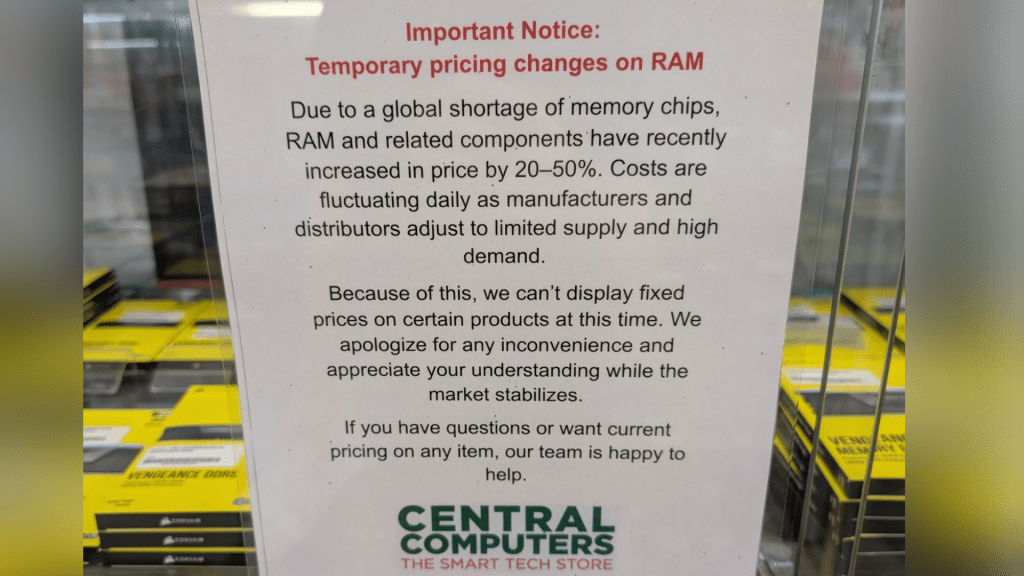Generative “AI” data centers are gobbling up trillions of dollars in capital, not to mention heating up the planet like a microwave. As a result there’s a capacity crunch on memory production, shooting the prices for RAM sky high, over 100 percent in the last few months alone. Multiple stores are tired of adjusting the prices day to day, and won’t even display them. You find out how much it costs at checkout.



So? Don’t fucking buy it! Has that never occurred to some y’all? If the rest of the world had my purchasing habits we’d already be looking at Depression 2.0.
Some peopne may need RAM, however.
Just pirate it then
I usually download my warez RAM modules from ramgirl repacks
https://en.wikipedia.org/wiki/Zram
Open-source RAM is better.
Using a RAM drive for swap?
Am I misunderstanding the point of swap?
It’s a compressed RAM drive being used as swap backing. The kernel’s already got the functionality to have multiple tiers of priority for storage; this just leverages that. Like, you have uncompressed memory, it gets exhausted and you push some out to compressed memory, that gets exhausted and you push it out to swap on NVMe or something, etc.
Kinda like RAM Doubler of yesteryear, same sort of thing.
I mostly get mine from https://downloadmoreram.com/